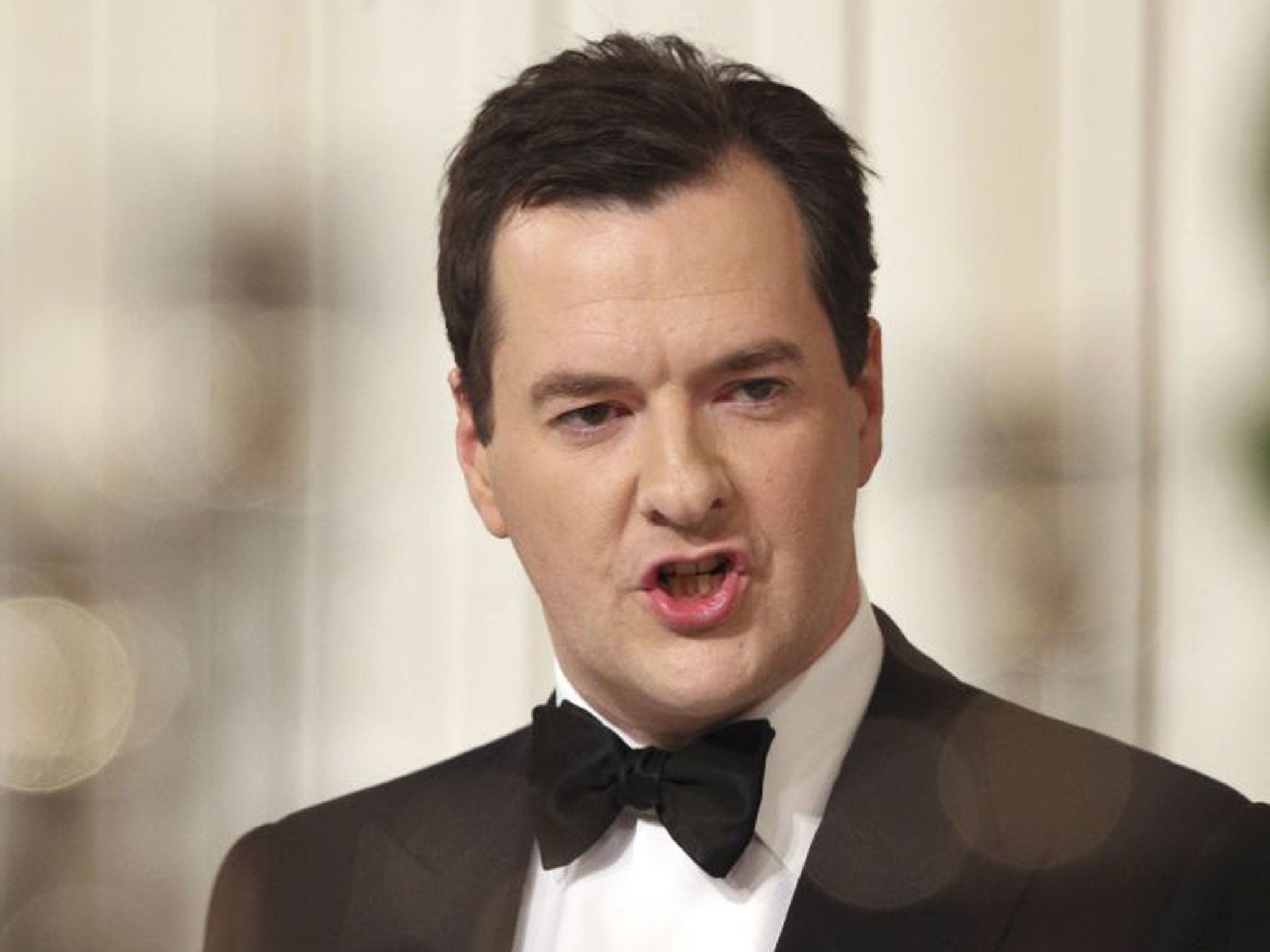Row over 'troubled families' fund disrupts Chancellor's spending plan
Last-minute call for hundreds of millions puts 'cat among pigeons' as George Osborne tries to finalise cuts

George Osborne's attempts to finalise his spending review ahead of its publication this week have been disrupted by a last-minute row over funding for the most troubled families in the country, it emerged last night.
The Chancellor is expected to announce a "long-term infrastructure plan" as part of his spending review announcement on Wednesday, pledging investment in roads, railways, education and science "to power Britain back into the economic premier league".
But his progress towards agreeing reduced 2015-16 budgets with Whitehall departments has been slowed by an attempt to win hundreds of millions of pounds extra for the Government's Troubled Families programme, led by Louise Casey. The unit, based in the Department for Communities and Local Government (DCLG), was set up to tackle crime, antisocial behaviour, unemployment and drug abuse among 120,000 families identified as the most troubled in England and Wales.
The Government last year allocated almost £450m over three years to help the families, returning their children to school, "cutting youth crime and antisocial behaviour and putting parents on a path back to work by 2015".
However, after a report earlier this year showed that only half the families had been identified, council staff were working with 24,000, and 1,675 had so far been "turned around", officials have asked for a huge increase in funding to produce quicker results.
"This has come out of left-field, at a time when most departments are resigned to getting less money," a Whitehall source said last night. "It has put the cat among the pigeons."
The request has held up final agreements on budget settlements for the DCLG and the Department for Education, The Independent on Sunday understands. The departments, along with Transport, Defence, and Business, Innovation and Skills, have so far failed to agree new budgets with the Treasury, which is looking for a further £11.5bn in savings in 2015-16. The majority of government departments face cuts of between 8 and 10 per cent.
Mr Osborne's package will declare that "the British economy is leaving intensive care", but stress that the nation needs to secure the recovery.
He is expected to tell MPs: "We are already making progress: the economy is growing, more than a million new jobs have been created... and the amount the Government has to borrow each year – the deficit – is down by one third. But there's more we have to do – it's time for the next stage of our economic plan. I know that times are still not easy for families. But we have a clear economic plan. We've stuck to it. It is working. And I'm determined to go on delivering it. Now, together, we're moving Britain from rescue to recovery – let's build an economy that works for everyone."
The ministers whose departments have not yet settled their budgets face showdowns tomorrow with the Chancellor and Danny Alexander, the Chief Secretary to the Treasury, as they attempt to thrash out the review package in time for Mr Osborne's statement to Parliament on Wednesday.
Vince Cable, the Lib Dem Business Secretary, has been resisting cuts of over £1bn, and is believed to have told colleagues that drastic spending reductions in his department could damage the economy. "This is not about departmental Nimbyism, it is about the whole government," a source close to Mr Cable said last night. "He wants us to be able to stand up after the review and have a strong argument on growth."
Mr Cable will face a "Star Chamber", made up of ministers who had already agreed their new budgets, along with Conservative colleagues Philip Hammond, Eric Pickles, Patrick McLoughlin and Michael Gove.
The looming spending review announcement has dominated political debate over recent weeks, and forced the Labour leader Ed Miliband to tackle the central issue of how his party would deal with the nation's financial problems if it were to win the next general election.
In a speech to party activists in Birmingham yesterday, Mr Miliband said Labour had to face up to the "hard reality" that it would not be able to reverse spending cuts scheduled by the coalition for 2015-16. Stressing the need for discipline in bringing down the deficit, he ruled out more borrowing to fund day-to-day spending, meaning that any changes to the 2015-16 settlement would require cuts from elsewhere or tax increases.
Mr Miliband set out plans for "regional banks", to penalise property developers who "sit on land" rather than build homes, and to require government contractors to offer apprenticeships for the next generation.
But he said: "Our starting point for 2015-16 is that we won't be able to reverse the cuts in day-to-day current spending unless it is fully funded from savings elsewhere or extra revenue, not from more borrowing."
But the Conservative Party chairman, Grant Shapps, dismissed the pledge, saying the Labour leader was "too weak to stick to his promises".
"Ed Miliband only offers more spending, more borrowing and more debt – the same old Labour approach that got us into this mess," he said.
Subscribe to Independent Premium to bookmark this article
Want to bookmark your favourite articles and stories to read or reference later? Start your Independent Premium subscription today.

Join our commenting forum
Join thought-provoking conversations, follow other Independent readers and see their replies